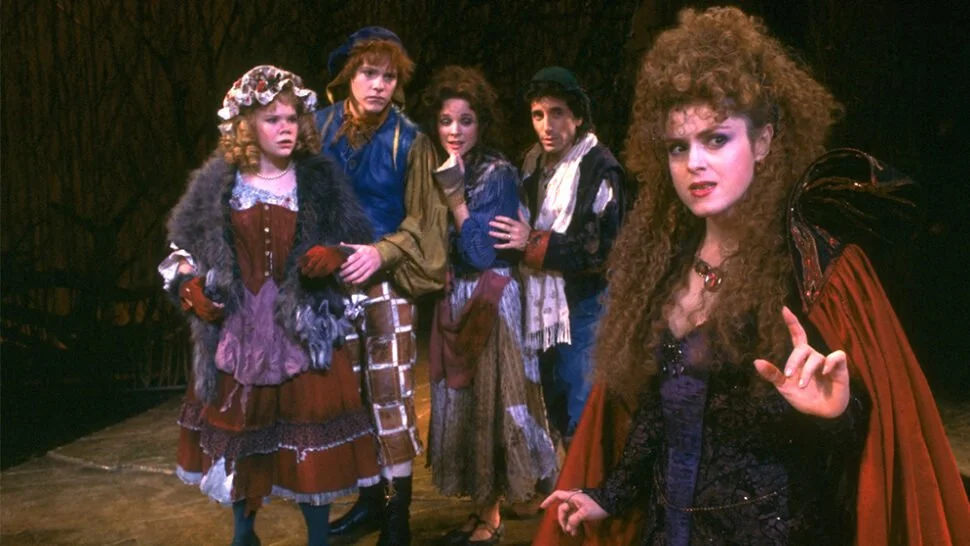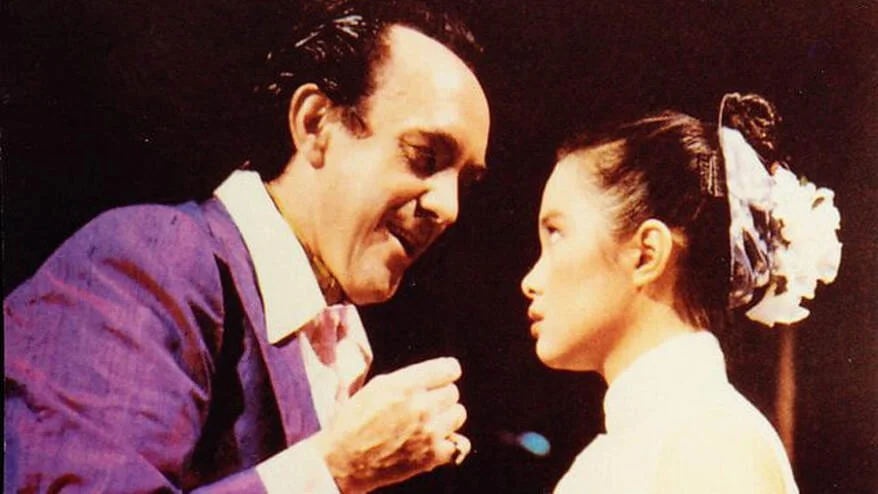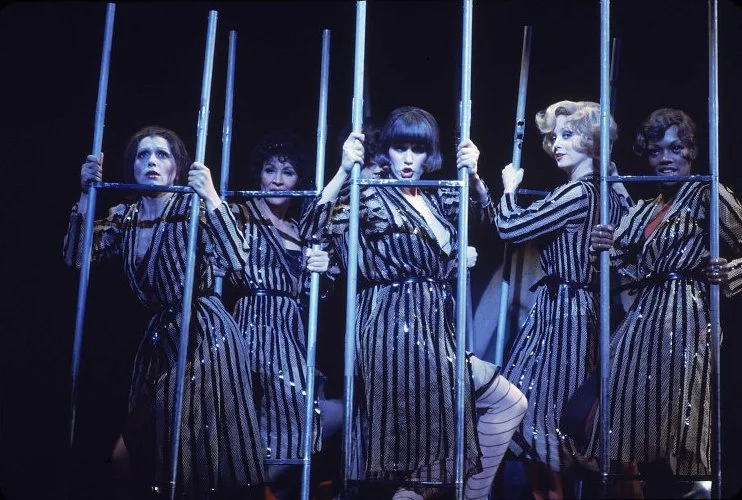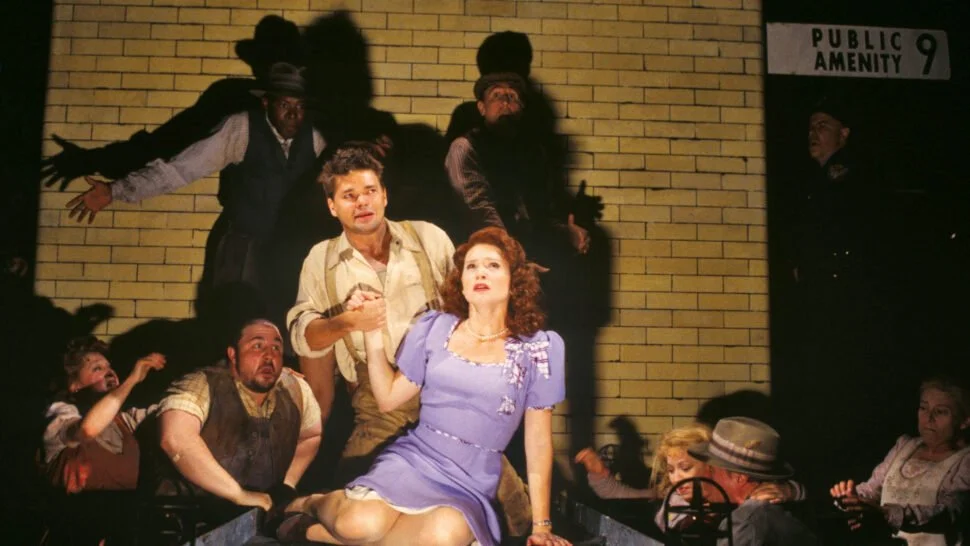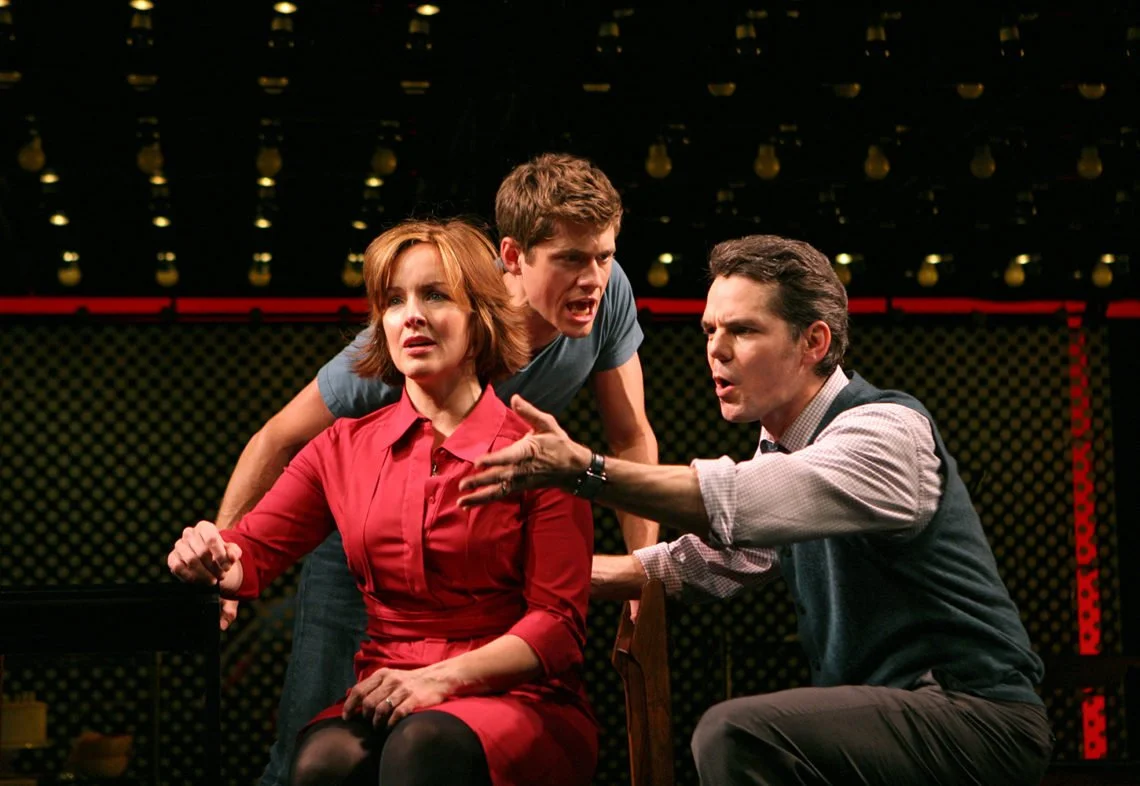TOP 10: Musicals That DIDN'T Win Best Musical
Robbed! Snubbed! Gooped and gagged! While the New York theater community who vote on the Tony Awards typically gets it right, there has been more than one outstanding musical that missed out on the top honor. As we celebrate the Best 2000s Broadway Musical, let’s take a look at the Great Pop Culture Debate’s list of the Top 10 musicals that didn’t win the Tony for Best Musical.
RELATED CONTENT
Best Tony Winner for Best Musical
TOP 10 2024 Tony Nomination Cheers & Jeers
10. Into the Woods (1988) - lost to The Phantom of the Opera
Starting off the list with a challenging one. To be honest, I love Phantom. The longevity of the show proves just how beloved and representative of the Broadway scene the show became. If I had my druthers, the Tonys would have brought back the ability to have a tie, as both of these shows are deserving of the top accolade. While the show may have initially closed (unlike Phantom until recently), Into the Woods has seen multiple revivals, with the 2022 version still on Broadway as of this writing. If you haven’t had a chance, go to the wood!
9. Miss Saigon (1991) - lost to The Will Rogers Follies
This is also a challenging take. Miss Saigon sparked controversy when it first premiered in London's West End with Jonathan Pryce, a white actor, playing the role of the Engineer, a Eurasian pimp. The controversy escalated when Pryce was denied the role in the New York production by the Actors' Equity Association. Threats of show cancellation by producer Cameron Mackintosh led to a reversal of this decision. Pryce eventually starred alongside Lea Salonga in the Broadway production, and despite the initial controversy, Miss Saigon’s music and book remain Broadway staples, in contrast to The Will Rogers Follies, which was likely considered a safer choice by the Tony voters.
8. Follies (1972) - lost to Two Gentlemen of Verona
A victim of the time period, Sondheim’s Follies missed out on the top nod in 1972. Follies’s nostalgic take on the reminiscences of a failing Broadway theater was set in the period straddling World War I and II, likely echoing a bit too closely to post-Vietnam feelings of the early 70s. Two Gentlemen of Verona provided more of an escape for the audience, which likely helped it walk away with the statue. Follies has continued to experience follies in later years, also losing the 2012 Tony for Best Revival as well.
7. Chicago (1976) - lost to A Chorus Line
I know my Great Pop Culture Debate colleagues will vehemently disagree with me here, but I simply am not a fan of A Chorus Line. To be frank, it feels a bit masturbatory to write a musical about what it’s like to be in a musical, but I digress. Chicago, on the other hand, is a well-written romp through the time of jazz that satirizes America’s two-tiered criminal justice system, something we’re seeing on display more and more these days. While Chicago’soriginal run may have only lasted for about two years, the 1996 revival production holds the record for the longest-running musical revival and the second-longest-running American musical in Broadway history. The film adaptation also won the Academy Award for Best Picture. So, I guess Dance: 10, Awards: 1.
6. Gypsy (1960) - lost to The Sound of Music and Fiorello!
When you think about iconic musical theatre, a few shows likely come to mind: Cats, Phantom, Les Mis. But if you ask someone to name iconic musical songs, so many of them come directly from the pages of Gypsy - “Some People,” “Everything’s Coming Up Roses,” and “Rose’s Turn” are staples in the annals of musical theatre history. While The Sound of Music is a beautiful show that I believe is certainly deserving of the Best Musical moniker, the little-known Fiorello!, a musical pandering to the residents of New York City about a former mayor, is a bit less deserving or that status. While La Guardia may have made an indelible impact on the city (enough to have an airport named after him!), the show doesn’t have the same reach or relatability as Gypsy. When’s the last time you heard someone belting out “I Love a Cop,” or “The Name’s La Guardia?” If there were going to be a tie for the Best Musical that year, it should have been between The Sound of Music and Gypsy.
5. Urinetown (2002) - lost to Thoroughly Modern Millie
I believe Urinetown was simply ahead of its time. Theater crowds weren’t quite ready for a show so irreverent and satirical, especially one that would mock musical theatre itself. I argue that Urinetown changed the face of musicals, in addition to being a well-written, well-sung piece of artistry. Its clever and witty humor, memorable music, and thought-provoking storyline make it a standout production. The show's dark comedy and engaging characters provide a fresh and entertaining theatrical experience -- something that, in my opinion, Thoroughly Modern Millie failed to do.
4. Next to Normal (2009) - lost to Billy Elliot the Musical
Do you want to dance, or do you want to cry? I, apparently, would rather cry than dance, but the New York theater community chose instead to boogie alongside Billy Elliot over Brian Yorkey’s Next to Normal. While Elton John’s music and Lee Hall’s uplifting story of a little British boy who loves ballet may have melted audiences' hearts, Next to Normal shined a light on challenging issues like mental health, grief, and loss in a way that Broadway hadn’t seen before. Alice Ripley’s performance earned her the well-deserved award for Best Performance by a Leading Actress, but the show missed out on the night’s top prize.
3. Jagged Little Pill (2020) - lost to Moulin Rouge!
This one was truly baffling to me . The story of Moulin Rouge had already had a turn as a musical movie in 2001, nominated for the Best Picture Oscar. Nineteen years later, John Logan turned the musical into a straight-up musical, keeping the story but updating some of the music. On the other hand, Diablo Cody took one of the greatest albums to have been recorded in Alanis Morrisette’s Jagged Little Pill and created a fully fleshed-out and coherent story from pre-made music. So often jukebox musicals -- like Mamma Mia! for example -- feel as though the music is shoehorned into the story. Jagged Little Pill achieves the balance of a modern and beautiful story (an adoptive daughter struggling with a suburbanite “perfect mother,” who is fighting her own battle with addiction) with a glorious score written 30 years before it was ever conceived. JLP deserved the award over the reheated leftovers of Moulin Rouge!
2. Hair (1969) - lost to 1776
Speaking of things audiences weren’t ready for, Hair hit Broadway like a slap across the face. It was evocative, edgy, and a first-of-its-kind rock musical that paved the way for shows like Godspell, Grease, Pippin, The Wiz, Dreamgirls, Aida, Spring Awakening, Next to Normal, and Jagged Little Pill. Hair focused on hippie counterculture and the sexual revolution of the late 1960s, and it included the first nude scene in a major Broadway musical. While 1776 may have been a look into the past, Hair was a look into the present-day strife of the Vietnam War and a look into the future of musical theatre. It was a massive cultural movement, and the Tony voters got this one wrong.
And before we get to the No. 1 biggest upset, you may be surprised to see a particular omission from this list. Many theater patrons would argue that 2004’s top nod going to Avenue Q over musical juggernaut Wicked should make this list. I, however, disagree. Wicked is a phenomenal musical, still playing on Broadway today nearly 20 years later. But I think what drew voters to Avenue Q’s side was the sheer irreverence and unabashed camp. Broadway had never seen anything like Avenue Q before its premiere, and while Wicked is a beautiful retelling of the beloved The Wizard of Oz, it lacked the grit and freshness that Avenue Q brought. Without Avenue Q, would we have seen shows like The Book of Mormon or Beetlejuice? Perhaps, but the trail would not have been quite as easily trod without it.
1. Dreamgirls (1982) - lost to Nine
This battle was steeped in a lot of controversy I hadn’t even heard before. Dreamgirls, directed by A Chorus Line’s Michael Bennett, was an immediate smash hit when it hit the stage. Bennett’s friend and notable Broadway Director Tommy Tune opened his own musical to Broadway the day before the end of the Tonys eligibility cutoff for the 1982 competition. Bennett begged and pleaded with his “friend” Tune to open the musical off-Broadway for a year to avoid the inevitable showdown, but Tune refused. Thus began the true drama-fueled feud between the directors, even resulting in affiliates of the Dreamgirls show refusing to even step foot in a restaurant if someone from Nine was there. Ultimately, through all the drama, Nine came out on top in voting, but Dreamgirls has clearly had the greater impact on Broadway with its multifaceted representation of black women and challenging themes of fatphobia, racism, and colorism in the field of music production.

